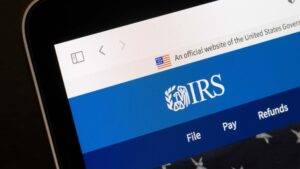

The Treasury Department has proposed the first major updates to Circular 230 since 2014. The comment period ends February 24, 2025, with a public hearing scheduled for March 6, 2025. Yes, in the peak of tax season. The Notice of Proposed Rulemaking can be accessed here.
Major Changes Affecting Tax Preparers
Tax Return Preparation Standards
Following the Loving v. IRS decision, the proposed regulations eliminate provisions related to registered tax return preparers. The standards have been revised to apply only to tax returns prepared, approved, or submitted in connection with representing a client in a matter before the IRS. The rules clarify that diligence requirements apply to tax returns prepared prior to representation when the subsequent representation involves that tax return.
Comment: IRS is still pushing for legislation to regulate tax preparers.
Contingent Fee Rules
The current contingent fee rules under §10.27 are being removed entirely. Instead, charging contingent fees for preparing original returns, amended returns, and claims for refunds will be classified as “disreputable conduct.” Contingent fees are defined broadly to include any fee based on tax savings achieved, percentage of refund, whether a position avoids IRS challenge, success in litigation, or arrangements where fees are reimbursed if a position isn’t sustained.
Comment: This means no contingent fees and is certainly a change resulting from the credit mills that revolved around Covid relief.
Knowledge of Errors
The proposed rules strengthen practitioners’ obligations regarding errors. Practitioners must advise clients of any noncompliance, errors, or omissions discovered in previously filed returns, regardless of whether the error was made by the current practitioner, a prior practitioner, or the client. They must explain the consequences and recommend corrective actions. Importantly, practitioners must consider whether they can continue representation if a client refuses to correct errors.
Comment: If you find an error, you must advise the client. And you need to put your advice to correct the error in writing.
Technology Competence
A new requirement addresses modern practice realities by requiring practitioners to understand the benefits and risks of technology used to provide client services, store, or transmit confidential information, and handle tax return information. This reflects the increasing importance of technology in tax practice.
Best Practices Updates
The regulations expand best practices to include maintaining data security policies and incident response plans. Practitioners should establish business continuity and succession plans. The rules also address the need to identify and address potential mental impairments that could affect practice capabilities.
How to Participate
It seems Treasury and the IRS may not have been concerned about “real” tax practitioners and their work schedule. However, you can:
Comment: Submit comments by February 24, 2025 with electronic submission through www.regulations.gov, referencing REG-116610-20.
Attend: The public hearing will be held March 6, 2025, at 10:00 AM ET at the IRS Building in Washington DC. Those wishing to speak must submit an outline of topics by February 24, 2025. To attend in person, email publichearings@irs.gov with the subject line “Request to ATTEND In Person for REG-116610-20” by March 4, 2025, 5:00 PM ET.
Comment: Mark Seid, Western CPE’s editor and instructor for the Federal Tax Update, is planning to attend.
Listen in: Virtual attendance is available by emailing publichearings@irs.gov with “Request to ATTEND Hearing Telephonically for REG-116610-20” as the subject line.
Comment: I have signed up to listen in, hoping to be able to multi-task again/still/as always.
Effective Date
The rules would take effect 30 days after final regulations are published. Prior proceedings and conduct will be judged under rules in effect at the time of occurrence.
Recent Stories


IRS Releases Guidance on Expanded HSA Access Under the OBBBA




Wrong Signature Invalidates Assessment Window (CCA 202505027)
Next Up...
- |
- TaxByte
- |
- TaxByte
- |
- TaxByte

